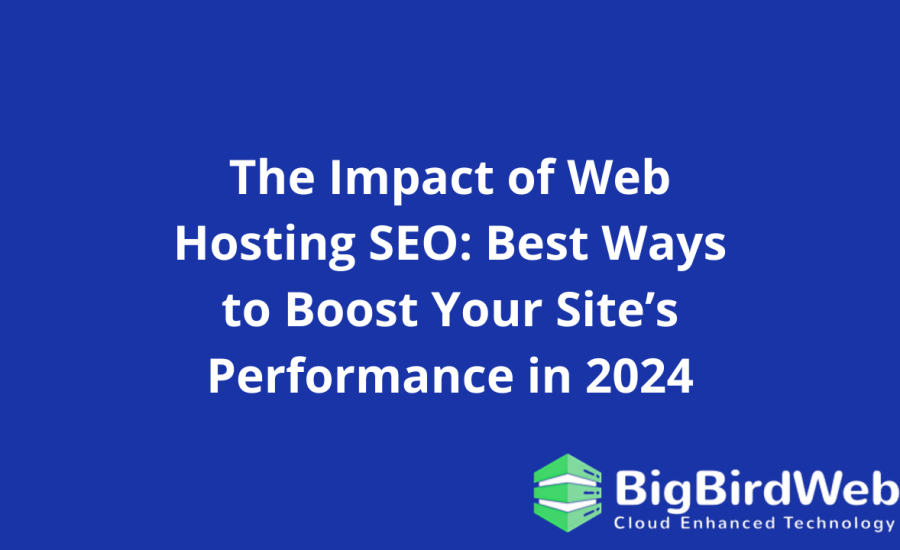One crucial element that often gets overlooked is the impact of web hosting SEO. Your web hosting choice can significantly influence your site’s performance, which in turn affects its SEO. In 2024, understanding how server speed, uptime, and location impact your SEO can give you a competitive edge. This comprehensive guide will delve into how different aspects of web hosting SEO influence search engine performance and provide actionable tips to optimize your hosting choices for better search engine rankings.
Table of Contents
Understanding Web Hosting SEO
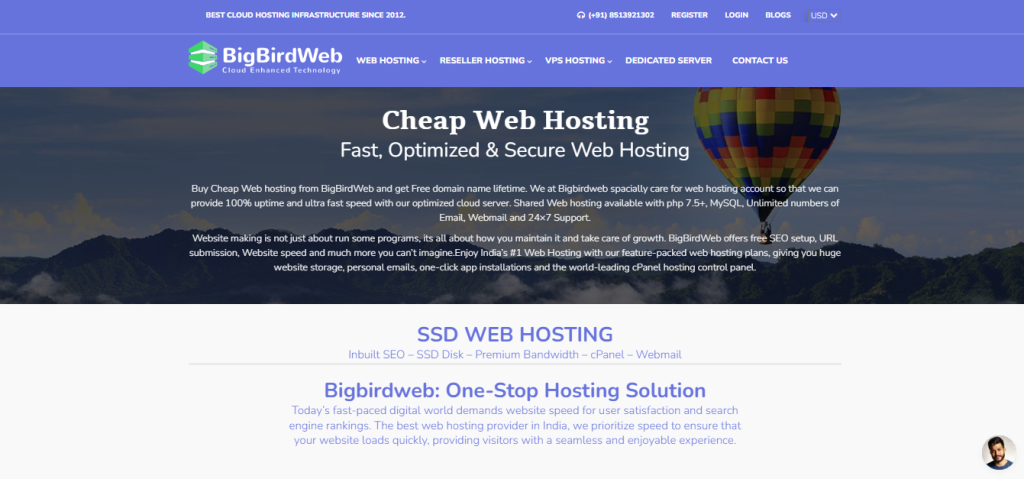
Before diving into the specifics, let’s define what we mean by web hosting SEO. It refers to the role that web hosting plays in influencing a website’s search engine optimization. While many focus on content, keywords, and backlinks, the hosting environment can also play a significant role in how well a site performs in search engine rankings.
The Connection Between Hosting and SEO
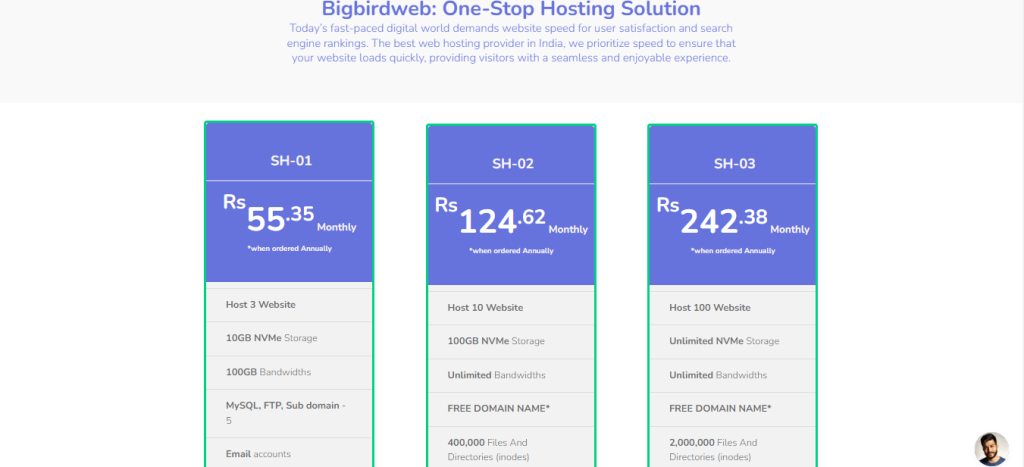
The relationship between hosting and SEO is often underestimated. However, your hosting provider affects several key SEO factors, including:
- Server Speed: The speed at which your server responds can impact your site’s load times, which is a critical SEO factor.
- Uptime: Consistent server uptime ensures that your site is always accessible to visitors and search engines.
- Server Location: The physical location of your server can affect load times and regional SEO.
- Security: A secure hosting environment protects your site from threats and keeps search engines from flagging it as unsafe.
1. Server Speed and Its Impact on Web Hosting SEO
Server speed is a crucial factor in web hosting SEO. Fast-loading websites provide a better user experience and are favored by search engines. Google and other search engines use page speed as a ranking factor, so slow server response times can negatively affect your search engine rankings.
How Server Speed Affects SEO:
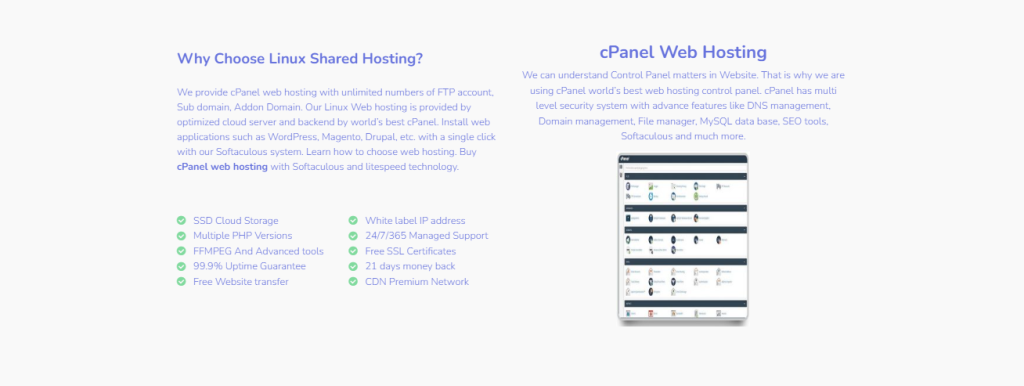
- User Experience: Faster websites provide a better user experience, reducing bounce rates and increasing engagement. Sites that load quickly are more likely to keep visitors and encourage them to explore more pages.
- Search Engine Ranking: Search engines like Google consider page speed when ranking websites. A slow site may be penalized with lower rankings, which can decrease your site’s visibility.
- Conversion Rates: Faster websites generally see higher conversion rates. A site that loads quickly can turn visitors into customers more effectively than a slow-loading site.
Tips to Improve Server Speed:
- Choose a High-Performance Hosting Provider: Opt for a hosting provider known for its fast server response times and performance. Look for providers with solid-state drives (SSDs) and high-speed connectivity.
- Use Content Delivery Networks (CDNs): CDNs distribute your website’s content across multiple servers worldwide, reducing load times for visitors regardless of their location.
- Optimize Your Website: Compress images, minify CSS and JavaScript, and leverage browser caching to improve page web hosting SEO.
2. Uptime and Its Role in Web Hosting SEO
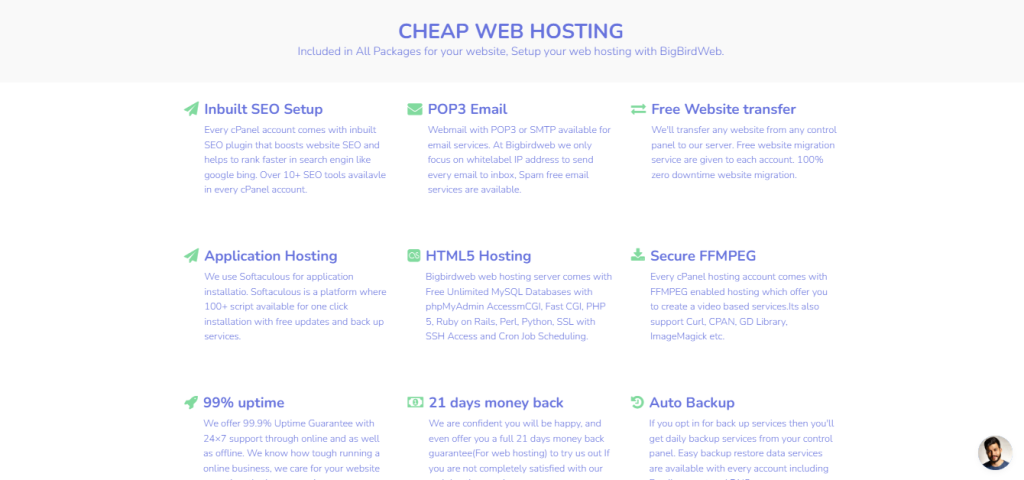
Uptime refers to the amount of time your website is operational and accessible to users. High uptime is essential for maintaining a positive user experience and ensuring that search engines can crawl and index your site.
The Importance of Uptime for SEO:
- Site Accessibility: A website with frequent downtime can be frustrating for users and search engines alike. If search engine bots can’t access your site, they can’t index your pages, which can harm your rankings.
- User Experience: Consistent uptime ensures that your website is available whenever users need it. Frequent outages can lead to a poor user experience and lost traffic.
- Trust and Credibility: A reliable site with high uptime builds trust with users and search engines. Websites with poor uptime may be seen as unreliable or untrustworthy.
How to Ensure High Uptime:
- Choose a Reputable Hosting Provider: Look for a hosting provider with a strong track record of reliability and high uptime guarantees. Many providers offer uptime guarantees of 99.9% or higher.
- Monitor Uptime: Use monitoring tools to track your website’s uptime and receive alerts if your site goes down. This allows you to address issues promptly.
- Implement Redundancy: Utilize load balancing and failover solutions to ensure that your site remains operational even if one server experiences web hosting SEO.
3. Server Location and Its Effect on Web Hosting SEO
The server location can influence your web hosting SEO performance, especially in terms of load times and regional search engine rankings. The closer your server is to your target audience, the faster your site will load for those users.
How Server Location Affects SEO:
- Page Load Speed: A server located closer to your audience can reduce latency and improve page load speeds. Faster load times contribute to better user experience and higher search engine rankings.
- Local SEO: If your website targets a specific geographic region, having a server located in or near that region can improve your local search rankings. Search engines may favor sites with servers close to the target location.
- Global Reach: For global audiences, using a CDN or multiple servers in different regions can help ensure consistent performance and accessibility. You can also opt for free web hosting.
Choosing the Right Server Location:
- Identify Your Target Audience: Determine where your primary audience is located and choose a hosting provider with servers in or near that region.
- Use a CDN: CDNs can help mitigate the impact of server location by distributing content across multiple servers worldwide, ensuring fast load times for users globally.
- Consider Global Hosting Providers: For websites with a global audience, select a hosting provider with a network of data centers around the world to optimize performance for all web hosting SEO.
4. Security and Its Impact on Web Hosting SEO
Security is a critical component of web hosting SEO. A secure hosting environment protects your website from cyber threats, such as malware and hacking attempts, which can affect your site’s performance and search engine rankings.
The Role of Security in SEO:
- Preventing Downtime: Security breaches can lead to website downtime, which negatively impacts user experience and search engine rankings. A secure hosting environment helps prevent such issues.
- Protecting Your Reputation: A compromised website can be flagged as unsafe by search engines and browsers, damaging your reputation and search rankings.
- Compliance: Security measures, such as SSL certificates and data protection, are essential for complying with regulations and maintaining user web hosting SEO.
Best Practices for Web Hosting Security:
- Use SSL Certificates: Secure Sockets Layer (SSL) certificates encrypt data transmitted between your website and users, protecting sensitive information and improving trust.
- Implement Firewalls: Firewalls help protect your website from malicious traffic and attacks. Ensure your hosting provider offers robust firewall protection.
- Regular Backups: Regularly back up your website to ensure you can recover quickly in case of a security breach or data loss.
5. The Role of Hosting Features in Web Hosting SEO
Certain web hosting features can also impact your SEO performance. While these features might not directly affect your search engine rankings, they contribute to overall site performance and user experience.
Key Hosting Features to Consider:
- Scalability: The ability to easily scale your hosting resources as your website grows ensures that performance remains optimal even during traffic spikes.
- Support: Quality customer support can help you resolve issues quickly, minimizing downtime and maintaining a positive user experience.
- Resource Allocation: Choose a hosting plan that provides adequate resources, such as bandwidth and storage, to handle your website’s needs without performance degradation.
Optimizing Hosting Features:
- Choose a Scalable Hosting Plan: Select a hosting plan that allows you to scale resources as needed, ensuring consistent performance as your site grows.
- Evaluate Support Options: Look for hosting providers with responsive and knowledgeable support teams that can assist you with technical issues and ensure smooth operations.
- Monitor Resource Usage: Regularly review your hosting plan’s resource allocation to ensure it meets your website’s needs and upgrade if necessary.
Bonus Content: Advanced Web Hosting SEO Tips for 2024
To stay ahead of the competition in 2024, consider implementing these advanced web hosting SEO strategies:
1. Leverage Edge Computing
Edge computing brings computation and data storage closer to the location where it is needed, reducing latency and improving performance. For websites with high traffic or real-time data requirements, edge computing can enhance site speed and user experience, positively impacting SEO.
2. Adopt Serverless Architectures
Serverless architectures allow you to run code without managing servers. This approach can improve scalability and reduce costs, ensuring that your website performs optimally during traffic spikes. A well-performing site is likely to rank better in search engines.
3. Utilize AI for Performance Optimization
Artificial Intelligence (AI) can be used to analyze and optimize website performance. AI tools can help identify and address performance issues, automate optimization tasks, and provide insights into improving user experience and SEO.
4. Integrate with Web Vitals
Google’s Core Web Vitals are key performance metrics that measure user experience. Hosting providers that offer tools and features to optimize these metrics can help you meet Google’s performance standards and improve your search rankings.
Conclusion
In 2024, the impact of web hosting SEO cannot be underestimated. The choice of hosting provider and the quality of hosting features play a significant role in determining your website’s performance and search engine rankings. By focusing on server speed, uptime, server location, and security, you can optimize your hosting environment to enhance your site’s SEO performance. Implementing advanced strategies, such as edge computing and AI, can further boost your site’s performance and keep you ahead of the competition.
Advanced Web Hosting SEO Strategies to Maximize Your Website’s Performance in 2024
While the fundamentals of web hosting SEO are essential for maintaining a strong online presence, advanced strategies can give your website the extra boost it needs to outperform competitors in 2024. These strategies focus on cutting-edge technologies and best practices that can enhance your website’s performance, user experience, and search engine rankings.
1. Leverage Edge Computing for Enhanced Performance
Edge computing is a revolutionary approach that brings data processing closer to the end-user, significantly reducing latency and improving load times. This is particularly important for web hosting SEO, as faster websites are favored by search engines and provide a better user experience.
How Edge Computing Impacts SEO:
- Reduced Latency: By processing data closer to the user’s location, edge computing minimizes the distance data must travel, leading to faster response times and improved load speeds.
- Improved User Experience: Faster load times enhance user satisfaction, leading to lower bounce rates and higher engagement metrics, which are critical for SEO.
- Better Regional Performance: For websites targeting specific regions, edge computing ensures consistent performance across different geographic locations, improving local SEO rankings.
Implementing Edge Computing:
- Partner with Hosting Providers Offering Edge Solutions: Choose a web hosting provider that integrates edge computing into their infrastructure. This will allow your website to benefit from reduced latency and faster load times.
- Optimize for Content Distribution: Use a Content Delivery Network (CDN) that leverages edge computing to distribute your content across multiple edge servers, ensuring quick delivery to users regardless of their location.
- Monitor Performance Metrics: Regularly track metrics such as page load time, server response time, and user engagement to assess the impact of edge computing on your website’s SEO performance.
2. Adopt Serverless Architectures for Scalability and Efficiency
Serverless architectures represent a paradigm shift in web hosting, where you can run code without provisioning or managing servers. This approach can significantly enhance the scalability and efficiency of your website, positively influencing web hosting SEO.
Benefits of Serverless Architectures:
- Automatic Scalability: Serverless architectures automatically scale resources based on demand, ensuring that your website performs optimally even during traffic spikes. This can prevent slowdowns that negatively impact SEO.
- Cost Efficiency: With serverless computing, you only pay for the resources you use, which can lower hosting costs while maintaining high performance.
- Reduced Maintenance: Since the hosting provider manages the underlying infrastructure, you can focus on optimizing your website and improving SEO without worrying about server maintenance.
Implementing Serverless Architectures:
- Choose a Serverless Hosting Provider: Look for hosting providers that offer serverless solutions, allowing you to deploy and run your website without managing servers.
- Optimize Code for Serverless Environments: Ensure that your website’s code is optimized for serverless execution, focusing on reducing execution time and resource usage.
- Monitor Performance and Costs: Keep track of performance metrics and costs to ensure that your serverless architecture is delivering the desired SEO benefits without exceeding your budget.
3. Utilize AI and Machine Learning for Performance Optimization
Artificial Intelligence (AI) and Machine Learning (ML) are increasingly being used to optimize website performance and improve web hosting SEO. These technologies can analyze large amounts of data to identify patterns and make real-time adjustments that enhance your website’s speed, security, and user experience.
How AI and ML Improve SEO:
- Predictive Analytics: AI can analyze user behavior and predict traffic patterns, allowing you to optimize your website’s resources and content delivery for peak performance.
- Automated Performance Optimization: AI-powered tools can automatically optimize your website’s performance by adjusting server settings, compressing images, and minifying code, leading to faster load times and better SEO.
- Enhanced Security: AI and ML can detect and mitigate security threats in real-time, protecting your website from attacks that could harm your SEO rankings.
Implementing AI and ML:
- Use AI-Powered Hosting Solutions: Choose a hosting provider that offers AI-powered performance optimization tools. These tools can automatically adjust server resources and settings to improve your website’s SEO performance.
- Integrate AI Tools for Content Optimization: Leverage AI tools that analyze content for SEO, suggesting improvements to keywords, meta tags, and content structure to enhance search engine rankings.
- Monitor AI-Driven Insights: Regularly review insights provided by AI tools to make data-driven decisions that improve your website’s performance and SEO.
4. Optimize for Google’s Core Web Vitals
Google’s Core Web Vitals are a set of metrics that measure the user experience on your website. These metrics, which include Largest Contentful Paint (LCP), First Input Delay (FID), and Cumulative Layout Shift (CLS), are now crucial ranking factors in Google’s algorithm. Optimizing for these metrics is essential for web hosting SEO in 2024.
Importance of Core Web Vitals for SEO:
- Improved User Experience: Websites that perform well in Core Web Vitals provide a better user experience, leading to higher engagement and lower bounce rates, both of which are important for SEO.
- Higher Search Rankings: Google uses Core Web Vitals as a ranking factor, so optimizing these metrics can lead to higher search engine rankings and increased visibility.
- Increased Conversion Rates: A better-performing website not only ranks higher but also converts visitors into customers more effectively, contributing to overall business success.
How to Optimize Core Web Vitals:
- Enhance Server Response Times: Reduce server response times to improve LCP. This can be achieved by choosing a fast hosting provider, optimizing your database, and reducing server load.
- Optimize JavaScript: Minimize and defer JavaScript to reduce FID. This ensures that your website is interactive more quickly after it starts loading.
- Stabilize Visual Elements: Prevent unexpected shifts in layout by ensuring that images, ads, and other elements have set dimensions. This will improve your website’s CLS score.
- Use Monitoring Tools: Regularly monitor your website’s performance on Core Web Vitals using tools like Google PageSpeed Insights and Lighthouse. Implement the recommended changes to improve your scores.
5. Embrace Green Hosting for Environmental and SEO Benefits
Green hosting, or eco-friendly hosting, refers to web hosting services that use renewable energy or offset their carbon footprint. As environmental concerns become increasingly important to consumers, green hosting can provide both SEO and brand benefits.
SEO and Environmental Impact:
- Positive Brand Image: Hosting your website on a green hosting platform can enhance your brand’s reputation and attract environmentally conscious consumers. This can lead to increased traffic and higher engagement, positively impacting SEO.
- Improved Search Rankings: Some search engines, including Google, consider the environmental impact of websites. Websites hosted on green platforms may receive a slight boost in rankings.
- Long-Term Sustainability: Green hosting ensures that your website’s operations are sustainable in the long run, aligning with global efforts to reduce carbon emissions.
Choosing a Green Hosting Provider:
- Research Hosting Providers: Look for hosting providers that use renewable energy, have energy-efficient data centers, or offset their carbon emissions. Many providers highlight their green credentials on their websites.
- Consider Green Certifications: Choose providers with recognized green certifications, such as Green-E, or those that participate in environmental programs.
- Promote Your Green Efforts: Highlight your use of green hosting on your website and marketing materials to attract environmentally conscious consumers and improve your brand image.
6. Focus on Mobile Optimization with Responsive Hosting
Mobile optimization is crucial for web hosting SEO in 2024, as more users access websites from mobile devices than ever before. Responsive hosting ensures that your website performs well on all devices, from desktops to smartphones, without compromising on speed or user experience.
Importance of Mobile Optimization:
- Mobile-First Indexing: Google now primarily uses the mobile version of websites for indexing and ranking. A mobile-optimized website is essential for achieving high search rankings.
- Enhanced User Experience: A responsive website that works well on all devices provides a seamless user experience, reducing bounce rates and increasing engagement.
- Faster Load Times on Mobile: Mobile users expect fast load times. Responsive hosting ensures that your website loads quickly on mobile devices, improving user satisfaction and SEO.
Implementing Mobile Optimization:
- Choose a Hosting Provider with Mobile-Friendly Features: Opt for a hosting provider that offers mobile optimization tools, such as responsive design templates and mobile caching.
- Test Your Website’s Mobile Performance: Use tools like Google’s Mobile-Friendly Test to assess how well your website performs on mobile devices. Implement the recommended changes to improve performance.
- Optimize Images for Mobile: Ensure that images are optimized for mobile devices by using appropriate file formats and compression techniques to reduce load times.
7. Integrate with Cloud Hosting for Flexibility and Reliability
Cloud hosting offers unparalleled flexibility and reliability, making it an ideal choice for web hosting SEO in 2024. By distributing your website across multiple servers, cloud hosting ensures that your site remains accessible and performs well even during high traffic periods.
Benefits of Cloud Hosting for SEO:
- High Availability: Cloud hosting provides high availability, ensuring that your website remains online even if one server fails. This minimizes downtime and improves SEO.
- Scalability: Cloud hosting allows you to scale resources up or down based on demand, ensuring consistent performance regardless of traffic levels. This helps maintain fast load times and a positive user experience.
- Enhanced Security: Cloud hosting providers often offer advanced security features, such as DDoS protection and automated backups, which protect your website from threats that could harm your SEO.
